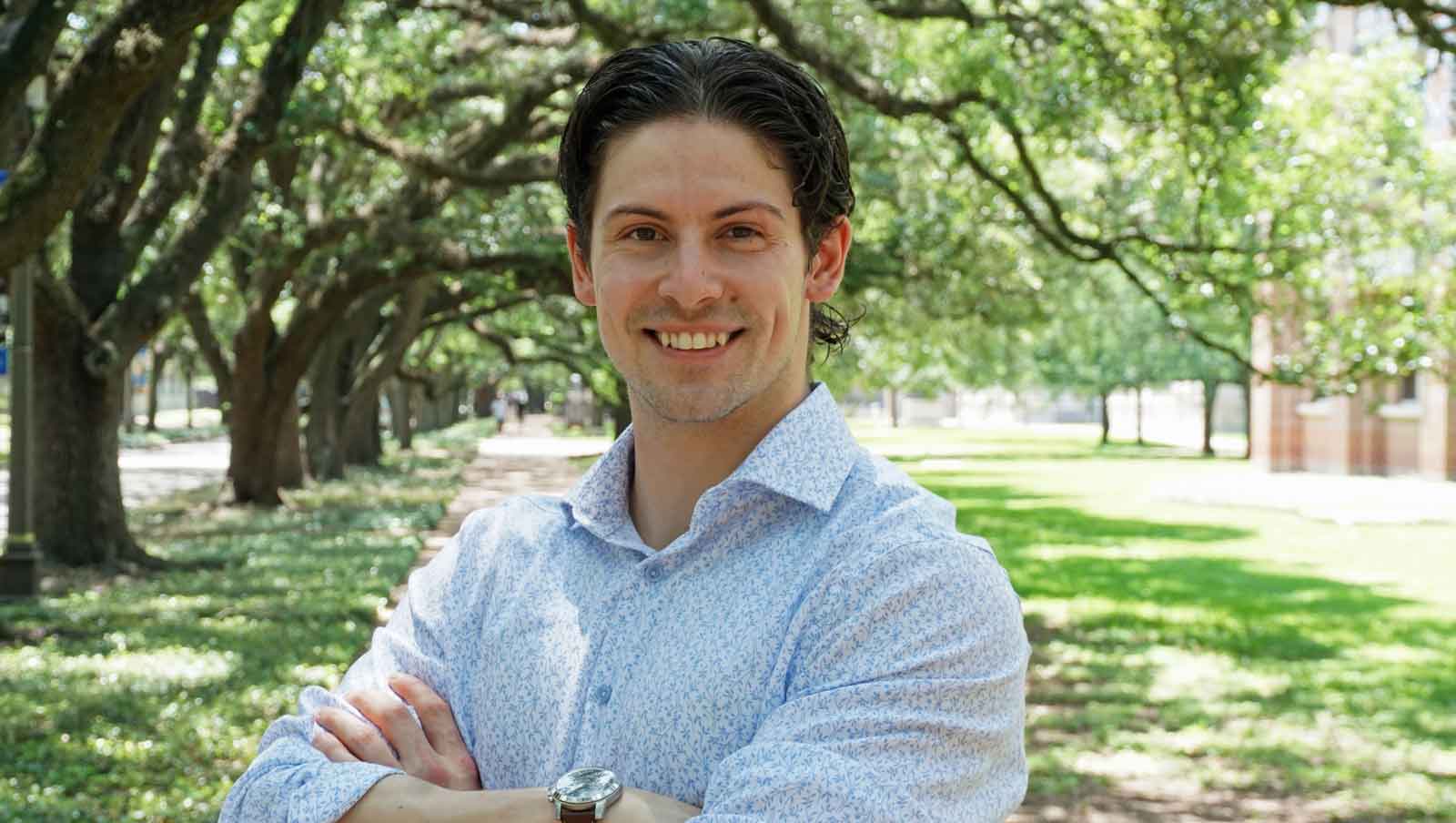“This summer, I am interning as a KBR Process Engineer and I am excited about working on energy plant projects,” said Charles Levesque, a first-year student in Rice University’s master of chemical engineering (MChE) program.
“Non-renewables are still the pillar of our energy consumption but there is a strong push for renewables, and KBR has clients in both sectors. I applied for their internship because the company can prepare me for the future of energy while also training me in the processes we are using --and improving-- right now.”
In terms of career readiness, Levesque considers his first year in Rice’s MChE program to be the high point of his university experience. He attributes the program’s strength to the industry experience of his professors, who use stories from their previous work to illustrate the chemical engineering principles they teach.
“It feels like my brain is getting rewired,” said Levesque. “I’m no longer absorbing information for an exam; I’m accumulating knowledge about how and why the concepts we are learning are applied in the real world. In addition, the rigorous coursework in chemical engineering principles is supplemented by pertinent electives. I’ve taken engineering leadership and economic courses designed to equip engineers for career advancement,” he said.
“Courses like these not only enable me to be a great employee, but they also prepare me to become a great engineering leader. I feel confident going into my internship, thanks to the skills and material I’ve learned this year in the MChE program.”
Changing career direction
His pivot to chemical engineering followed an undergraduate degree in chemistry. As a senior, his student research focused on a new technology to produce hydrogen without the usual process requirement for storing hydrogen as a fuel carrier.
“Although I understood all the chemical principles, I felt I was missing important engineering principles. That exposure prompted me to explore chemical engineering as a profession, and I realized I would need an advanced degree to make the career switch,” said Levesque.
Rice was already on Levesque’s shortlist due to its reputation as a top chemical engineering school. He also wanted a program where his professors would have strong industry connections. Finally, Levesque sought an environment where his internship opportunities would allow him to put down roots with a future employer, not just improve his resume.
“The combination of academic excellence, faculty industry connections, and the location in Houston –the chemical engineering capital of the United States—made choosing Rice’s MChE program an easy decision. For someone looking to pursue a career in chemical engineering and energy, Houston would be the best place to be, especially for young engineers,” said Levesque.
He suggests new MChE students ask their instructors for correlations to their previous work. “Faculty members like my thermal dynamics professor link every concept to a story. Most chemical engineers seem to agree that it is the correlation with a story that helps you understand the concept and recall its application when you come across it in your work. Seek out those examples whenever you can,” he said.
Taking advantage of all Rice’s resources
He also advises prospective and new students to utilize Rice resources. “This is part of the Rice experience: becoming the best version of yourself, the best engineer you can be when you graduate. As MChE students, we are getting a master’s degree because we want to further our careers. If you join the program, be sure to take advantage of Rice’s many resources outside the classroom.
“The Doerr Institute for New Leaders is a free academy, providing Rice students opportunities to learn management skills like communication and conflict resolution. Through the Doerr Institute, students can sign up for one-on-one mentoring with professionals typically hired by Fortune 500 companies to coach their leaders.”
He also signed up for several workshops offered by the university’s Center for Career Development, including networking sessions that paid off when he reached out to KBR recruiters on LinkedIn.
“Be sure to sign up for Sallyportal,” he said. “This is a private channel for Rice students and alumni. In Sallyportal, you can ask for advice from alumni in the same field or on a similar path, people who are committed to responding to your questions.”
“Finally, the CHBE GSA does a wonderful job of creating industry networking and skills workshop events, all designed to support our department’s graduate students and all free,” said Levesque.
Learn more about Rice University's Master of Chemical Engineering program at our upcoming information sessions.

